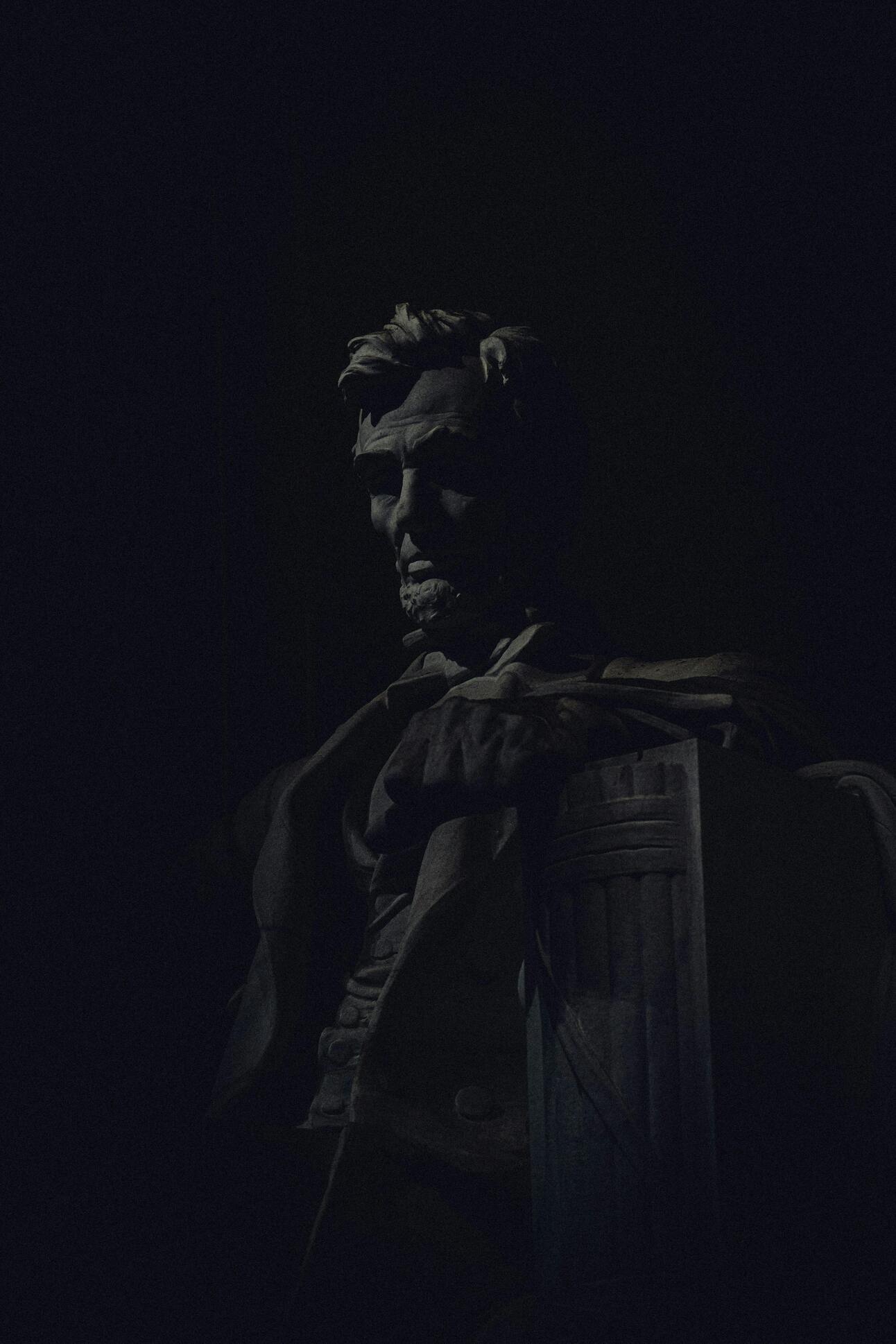Been a leader most of my life.
Was a leader when the young friends we used to play grassroots football with on muddy terrains with sticks as goalposts needed someone to lead them into battle against rival neighborhood kids’ teams. When I had sewn the paper bag ball with straws and skill into the famous ajwala.
Was a leader in junior school when teachers needed someone to tell others to basically shut up, and to write the names of the defiant. When someone had to be held accountable if the class wasn’t swept for the day, or if the assignment books hadn’t been collected by home time. It gave me the power to determine who would be whipped for not submitting assignments on time. Good times.
Was a leader when the vibrant voices of debate barked inside me, and I led the entire school through debates that were, looking back, almost meaningless: like why a teacher is better than a doctor, or why educating the girl child was more important than the struggling boy child in the 21st century. The power came from dividing the crowd into opposers and proposers and letting my limited judgment decide the debate.
I was a leader when the school needed a representative to sit in the student council, and when the administration formed a force to govern the students. I sat at tables and in prefectorial common rooms where the highest decisions of the boys’ centre were made. I was part of the committees that distributed duties among students. I decided who swept the highways, who washed the washrooms that week, and who cleaned the dining tables.
Washing the washrooms was referred to as mining back at my alma mater, because you were cleaning the “gold” faeces of your fellows. You mined them from their bowls and ensured everyone had a clean place to shit. I did that. I had my fair share of mining, but when the time came, I was in the room that decided who mined that week. I had that power. It had been bestowed on me by the Director of the school himself. And it made me feel powerful—like I was in charge of 80 bright students from all over the country. I mean, I was in charge of them, but it felt like so much more than that.
I was in the room when prefects and captains stayed up until 2 a.m., waiting to conduct their semi-legal raids on unsuspecting, sleeping students. It made us feel powerful; to catch rule-breakers with contraband in their lockers and metallic boxes. That’s what the power of being a prefect or captain meant: catching wrongdoers at their lowest, when they least suspected it, and when they were most vulnerable. A sleepy man will say anything to go back to sleep. That’s one of the instances where our power met them.
I was in the vehicle that led a choir to strange lands to spread the gospel of our Lord and Savior. But before stepping into the vehicle, I was in the room that planned the logistics and nitty-gritties of the trips that carried the Good Word. I had been appointed a leader by a Spirit, and by the hands of those who trusted me. I had to lead others into foreign lands to perform our duties.

Lately, I’ve been watching documentaries on Hitler. I’ve taken the time to dissect, a little deeper, the movements of this infamous man. From what I’ve gathered, I can see where Hitler was coming from. Hear me out:
He was a troubled kid in school. Bullied, mocked. He grew up to serve in World War I as a soldier in the German army. A corporal. He mostly worked as a messenger, delivering orders between units. He was wounded twice in the process. He had witnessed the atrocities of war, and when he saw how Germany was treated after the war he was enraged and longed for change—as we all do. The difference, I believe, between Hitler and most people who want to change the world is: he actually took the steps to make it happen. And boy, did he bring change!
Hitler rose to power by leading the Nazi Party, gaining massive support mainly through propaganda, nationalism, and public discontent. The Germans were furious about their post-war treatment. Who wouldn’t be? Their egos were bruised, and so was Hitler’s. In 1933, he was appointed Chancellor of Germany—a position he had fought hard for. After President Hindenburg died in 1934, Hitler combined the roles of Chancellor and President, becoming Führer—Germany’s absolute leader. Now, he had the absolute power to implement the change he envisioned. As Führer, he took full control of the military and led Germany into WWII.
Do I approve of his methods? Absolutely not. What he did to Jews and non-Germans was despicable. Crude. Uncouth. All manner of horrendous terms were coined because of this one man. Humanity, at the time, didn’t know it could hate one man that deeply. It burned in people’s chests, and the rest of the world wanted to take him down.
But what impresses me about Hitler was his strategy up until his demise. He climbed the ranks and became absolute ruler. Yes, his path was paved by devious means, but it worked. As a writer and aspiring orator, I admire his speeches, even though I don’t understand a word. They say Russian sounds like rage, but the way Hitler rallied people to his ideologies was something else. Especially at a time when hope had been lost. He spoke with courage, strength, and so much force that his spit alone could fill bottles. His fury toward the rest of the world was unmistakable in his speeches.
He was a great and convincing orator. His speeches were dramatic, emotionally delivered, and enabled him stir nationalist and populist sentiment. He captured masses with these speeches. Though his ideas were extreme and dangerous, he used tone, pacing, and repetition masterfully to captivate crowds and manipulate public opinion—a key factor in his rise to power.
And after capturing the masses, he acted. He executed his strategy ruthlessly. He knew what he wanted, assembled a team, and installed systems to ensure success.

Two things show me Hitler was a meticulous planner: his bunker and Auschwitz-Birkenau. Those two locations prove he had foreseen both his reign and its potential collapse. That concentration camp was engineered for every possible scenario of torture. It had a streamlined supply chain that enabled him to execute his hatred with precision. And the bunker was no afterthought. It was a calculated fallback plan, had his body and generals not failed him.
I admire Hitler’s leadership, not his execution. His leadership got things done. He sought to restore his people’s glory. I’ve also had moments where I felt the need to restore those I led to their greatness, or at least lead them to their potential. I’ve led situations whereby what is needed is action, and not words. Sometimes, the only way forward has felt like taking what’s rightfully yours, even if it causes friction.
This brings me to the one thought that’s been haunting me lately: that leaders are only as great as the people they lead!
I’ve led people who wanted to be led. People who asked for direction, cooperated in pursuit of shared goals. People who stepped back and let you lead. Who consulted, followed up, and kept you in check. People who put their egos aside because they chose to be led. Yes, we are all leaders in our own ways, but everyone needs guidance at some point. A compass. A steady hand.
I’ve also led people who, by their actions, clearly did not want to be led. And it sounds cliché, but teachers used to insist on cooperation from students. I now understand them, that unless students cooperate with you, your week of leadership is doomed. I believe leadership is two-way traffic. People must choose a leader who can get them to the goal. Hitler, again, is a perfect example. He rose among a disillusioned people who chose him to restore their glory. Without their support, he would’ve been nothing.
If you lead people who don’t want to be led by you, it breeds contempt and chaos. I think unless a leader can convince people of their vision, their best ideas will die unfulfilled. I’ve experienced this. Twice. Both times leading church youth.
I had ideas—I always have. Ideas to improve any group I’m part of: church, school, social, or friend groups. Ideas that I lay bare to everyone for consultation and diverse input. But nothing frustrates me more than closed groups. Groups that people are afraid or just simply do not want to talk. Most Gen Z, my age mates, are shy, or they think they’re not clever enough to contribute. Ironically, these are the ones who most need leadership. But they don’t want it. Heck, most don’t even know what they need is guidance through good leadership. I blame social media for numbing them. They want meetings over quickly, so they can return to doom-scrolling. Silence to them speeds up the meeting clock.
Another challenge that has hindered my leadership is dealing with people who are firmly rooted in their old, rigid beliefs. It’s incredibly hard—very hard—to convince someone to let go of outdated ways of thinking and embrace a new approach. Isn’t that exactly how people resisted online meeting platforms before 2019, only to be forced into adoption by the pandemic? I won’t lie, I’ve been guilty of this too. If something is working reasonably well, I’m often reluctant to change it. I hesitate to challenge the status quo, even when there’s a clearly better alternative sitting across the table. And truthfully, that hesitation has cost me more times than I care to admit. It becomes difficult, almost impossible, for a leader to guide a group that’s too comfortable with the ‘old ways.’ It makes the leader seem like an alien presence. A disruptor. Something that’s come to disturb the delicate peace of familiarity.

Hitler had his people; those who believed in his vision of a better Germany. People who trusted his ideas to lead them toward global supremacy. In contrast, the Israelites often did not believe in Moses’ ways—nor in God’s instructions—throughout their exodus. That’s why the Good Book repeatedly refers to them as a tough-headed and stiff-necked people. Their ideas rarely aligned with Moses’.
This is even more evident in football. My team, Real Madrid, has recently entered a new era under a new manager, Xabi Alonso. I like this guy. He embodies everything I believe makes a good leader: composed, experienced, full of ideas he's not afraid to execute—and funny, too. He’s an active coach, one who actually trains alongside his squad. I believe, even this early in the season, that his success at the biggest club in the world will depend heavily on the faith his players place in him.
The previous manager, Mr. Ancelotti, had been a great coach way before 2014, at every club he managed. But in recent times, his ideas had stopped resonating with both fans and some players. Time and again like many other fans I noticed that Jude, Vini, and Rüdiger, to name just a few, no longer seemed to believe in his plans. They would often say, “You are the coach—tell us what to do!” But Don Carlo would simply raise an eyebrow, chew his gum, and sit nonchalantly on the bench. It vexed me so much throughout last season that I almost broke both my TV and laptop screen.
That is not the kind of leader I believe in. I believe a leader is only as good as the people he leads. If the people believe in him and his ideas, and actively cooperate, he succeeds. They succeed.
For too long, I’ve been leading people who neither believe in my ideas nor in me. They whispered behind my back and plotted my downfall, so that in the end it looked like I failed them. Isn’t that partly why Hitler’s army was defeated? His generals gradually lost faith in the Führer and his vision, and in the end, it came back to bite them in the a**. I’ve spent too long leading people I couldn’t convince to join my train of thought. Or even meet me halfway. We were divided like night and day, like oil and water. And so, after some reflection, I think it’s time I find, or form, or become part of a group that shares my mindset and ideals.
I took the whole of 2024—and now six months into 2025—off from active leadership in any sphere, shape, or form. I needed to step back. To observe those who came before me. To learn. To reflect. And the first major lesson I’ve drawn from this pause is this epiphany.
But even as I hold on to it, I can’t shake the fear that my desire to lead only like-minded people might be a sign of failure on my part. Isn’t a true leader supposed to convince others? Shouldn’t I be able to guide people into alignment—or at least forge a middle ground where our ideas merge into a shared vision? A part of me still believes that for leadership to truly succeed, I must be able to bring others on board with my ideas, or co-create a direction where everyone feels seen.
But then I wonder: will that be successful leadership? Will that yield better results in my journey as a leader? Or is it just wishful thinking disguised as strategy?

What do you think?
✍🏽Reagan.

